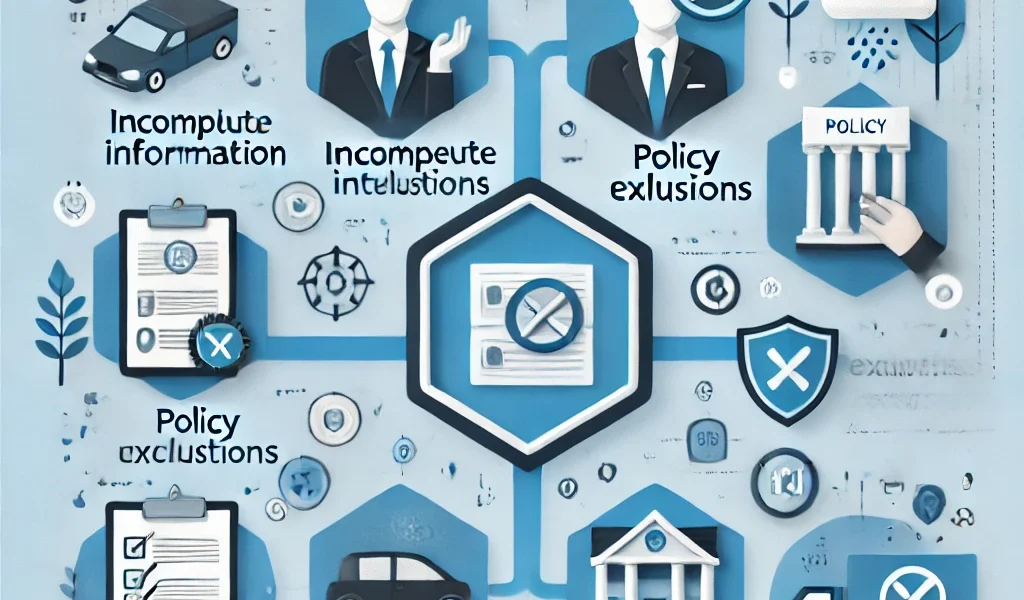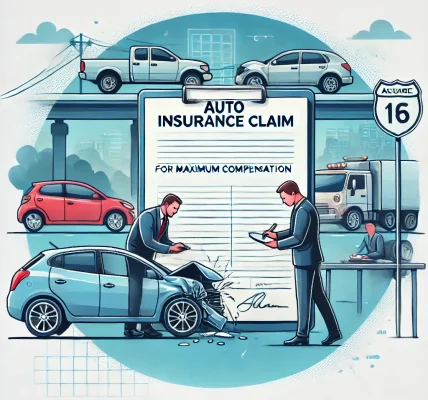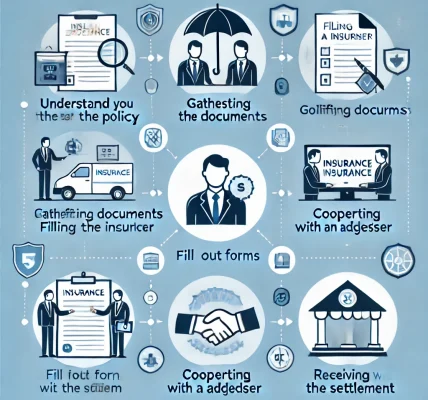Filing an insurance claim can be a complex process, and rejection can be frustrating. Understanding the common reasons for claim denials and knowing how to prevent them can save you time, stress, and financial loss. This guide will walk you through the major pitfalls that lead to claim rejections and provide actionable steps to ensure your claim gets approved.
1. Incomplete or Incorrect Information
One of the most common reasons for claim rejection is missing or inaccurate details on the claim form. Even a minor mistake in personal details, policy numbers, or claim descriptions can lead to delays or outright denials.
How to Avoid:
- Double-check all details before submitting your claim.
- Ensure that names, dates, and policy numbers match the official documents.
- If filling out the form manually, write legibly to avoid misinterpretation.
2. Policy Exclusions and Coverage Limitations
Every insurance policy has exclusions and limitations. Many people file claims for events or damages that are not covered, leading to rejection.
How to Avoid:
- Read your policy document carefully to understand what is covered and what isn’t.
- If in doubt, contact your insurer for clarification before filing a claim.
- Consider additional coverage options if your policy lacks coverage for certain risks.
3. Delay in Claim Submission
Most insurance companies have specific timelines for submitting claims. Filing too late can result in rejection.
How to Avoid:
- Report the incident to your insurer as soon as possible.
- Keep track of your policy’s claim submission deadlines.
- Use online submission methods to speed up the process.
4. Lack of Proper Documentation
Insufficient documentation is another major reason claims get denied. Insurers require proper proof to validate claims.
How to Avoid:
- Keep copies of all necessary documents, such as police reports, medical records, repair estimates, and bills.
- Take photos or videos of damages to support your claim.
- Submit all required forms and evidence promptly.
5. Non-Disclosure of Information
Failing to disclose important details about your medical history, vehicle modifications, or property conditions can lead to claim rejection.
How to Avoid:
- Be honest when providing information at the time of policy purchase.
- Update your insurer about any significant changes in health, property, or vehicle use.
- Provide complete and truthful information while filing a claim.
6. Pre-Existing Conditions (For Health Insurance Claims)
Many health insurance policies do not cover pre-existing conditions, especially if they were not disclosed when purchasing the policy.
How to Avoid:
- Disclose any pre-existing conditions when buying a policy.
- Check if your policy has a waiting period for covering pre-existing illnesses.
- Maintain a record of medical history and necessary approvals from the insurer.
7. Policy Lapse Due to Non-Payment
If your policy has lapsed due to missed premium payments, your claim will not be honored.
How to Avoid:
- Set reminders to pay premiums on time.
- Opt for auto-debit options to ensure timely payments.
- Keep a record of all premium payments for reference.
8. Fraudulent Claims
Submitting a false or exaggerated claim can lead to immediate rejection and even legal consequences.
How to Avoid:
- Always provide truthful and accurate information.
- Submit genuine proof and supporting documents.
- Avoid inflating damages or losses, as insurers conduct thorough investigations.
9. Unauthorized Repairs or Treatments
For auto, health, and home insurance, insurers often have a network of approved service providers. Getting repairs or treatments from unauthorized vendors can lead to claim denial.
How to Avoid:
- Check with your insurer for a list of authorized service providers.
- Get prior approval for repairs or medical treatments, if required.
- Keep all receipts and invoices for documentation.
10. Not Following the Proper Claim Procedure
Each insurance company has a specific process for filing claims. Skipping necessary steps or not following the guidelines can lead to rejection.
How to Avoid:
- Familiarize yourself with your insurer’s claim process.
- Follow the required steps, from initial notification to documentation submission.
- Keep track of communication with the insurer and maintain a record of claim-related conversations.
Final Thoughts
Understanding why insurance claims get rejected can help you avoid common mistakes and ensure a smoother process. By being proactive, honest, and thorough with documentation, you can improve your chances of claim approval. Always review your policy, stay informed about claim procedures, and seek clarification from your insurer when needed.




